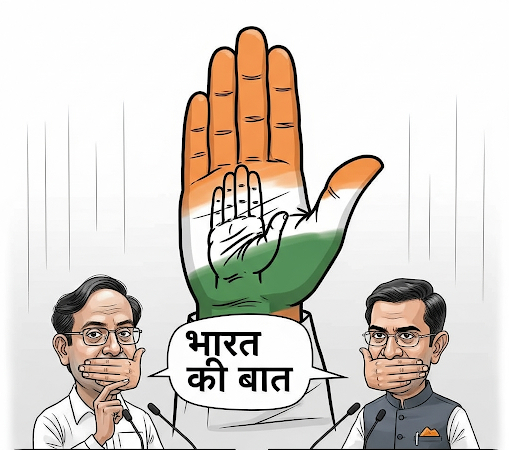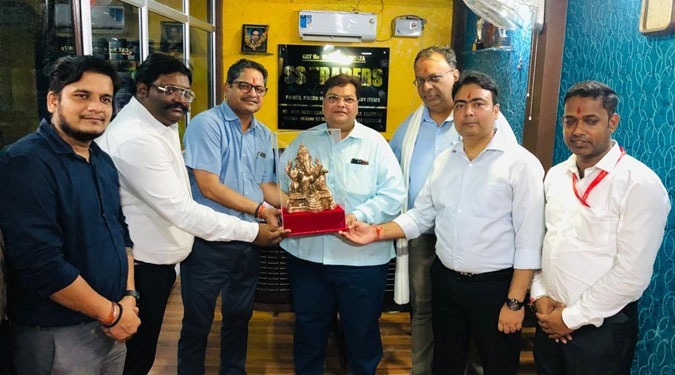New Delhi: In the cacophonous theatre of Indian politics, silence can often be more eloquent than a speech. The decision by the Indian National Congress to sideline two of its most articulate parliamentarians, Shashi Tharoor and Manish Tewari, from a crucial debate on national security has spoken volumes. It points not to a disciplined party presenting a united front, but to a grand old party grappling with a deep-seated ideological schism, one that the ruling BJP is all too eager to exploit. The subsequent “Bharat Ki Baat” remark, amplified by Tewari, is not mere dissent; it is the symptom of a chronic ailment.
The context is the recent parliamentary discussion on “Operation Sindoor,” India’s retaliatory measure following the tragic Pahalgam terror attack. On matters of national security, a mature opposition is expected to balance scrutiny with solidarity. Yet, the Congress leadership, in its wisdom, chose to omit from its list of speakers Tharoor, a former UN Under-Secretary-General, and Tewari, a former Union Minister. When questioned, Tharoor’s wry response of observing a “maunvrat” (vow of silence) was a masterclass in political understatement.
The silence, however, was broken on social media. Tewari’s post on X, quoting the timeless patriotic lyrics, “Bharat ka rehne waala hoon, Bharat ki baat sunata hoon” (I am a resident of India, I tell the story of India), was a direct and potent message. It was a clear assertion that on core national issues, their allegiance is to the idea of India first, a position that should be unremarkable but has become a point of contention within the party’s strategic calculus. The post implicitly questions the party’s official line, suggesting it may have veered too far into reflexive opposition, leaving no room for a nuanced, nation-centric stance.

This episode reveals a fundamental quandary for the Congress. In its fervent desire to oppose the Modi administration on all fronts, is it creating a political environment where any statement not drenched in pure criticism is deemed a betrayal? Mr. Tharoor’s purported view that he could not “fully support the party position” and his consistent stand that “India will always come first” highlights this very dilemma. By benching such voices, the Congress high command sends a chilling message: conformity is valued over competence, and the party line trumps patriotic nuance. This is a strategic self-goal of staggering proportions. It not only deprives the party of its most effective communicators in Parliament but also feeds the BJP’s narrative that the Congress is fundamentally misaligned with the national sentiment on security.

The BJP, for its part, has been handed a political gift. It can now paint the Congress as a party so consumed by its opposition to one man that it is willing to silence its own leaders who dare to speak for India. For an opposition bloc attempting to forge a unified front, such internal fractures are disastrous. They project weakness, indecision, and a lack of a coherent core ideology.
The challenge for the Congress is not Tharoor or Tewari. The challenge is its own inability to forge a political identity that can be both a robust opposition and a credible government-in-waiting. An opposition’s role is not just to oppose but also to propose and, at times, to support what is right for the nation. By failing to create space for this diversity of thought, the Congress risks becoming a monolithic echo chamber, increasingly detached from the very people it seeks to represent. The song of India is a symphony of many voices; the party that fails to listen to its own chorus will eventually be deafened by the silence of its departure from the national stage.





